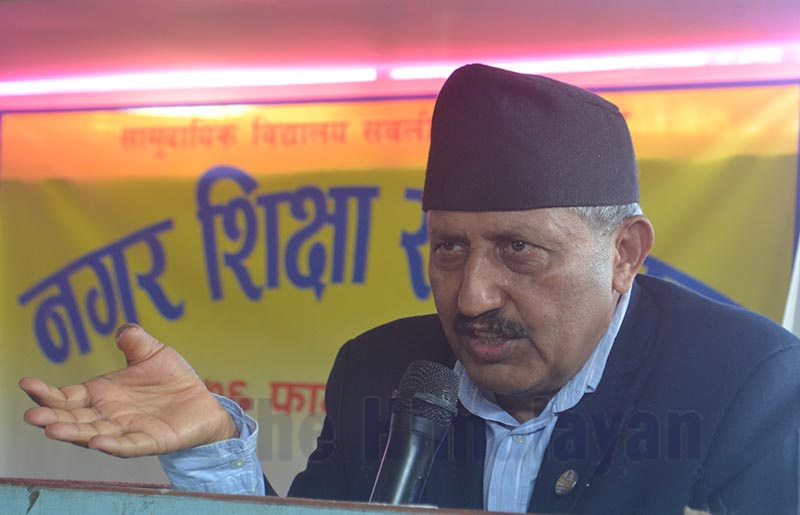Minister stresses education development
Kathmandu, July 13
Minister of Education, Science and Technology Giriraj Mani Pokhrel said preparations were on to prepare a framework for achieving sustainable development for education at the province and local levels.
Chairing a virtual meeting of the 32nd general assembly of Nepal National Commission for UNESCO today, the minister said the draft of the National Plan of Action in line with the commitments and priorities of goal number 4 of Sustainable Development Goals had already been prepared and action plans for province and local levels would be drafted.
The SDGs, the 2030 agenda for sustainable development, is a collection of 17 goals, and goal 4 is about quality education.
NNCU chair and Minister Pokhrel, on the occasion, stressed on collective initiatives for education development by assimilating science, technology and research, amid the adversity caused by the COVID-19 crisis.
The minister said the government was focused on implementation of National Educational Policy and National Science and Innovation Policy.
He opined that universities at home should prioritise research and innovation for creation of new knowledge instead of delivering old knowledge.
He insisted on the need of knowledge that is capable of leading the new normal to positivity.
He called for deconstructing outdated views, assumptions, seeking the attention of related people towards that end and initiation of the UNESCO Secretariat for the same in the beginning of the new fiscal year.
Presenting the annual report before the gathering, NNCU General Secretary Dr Baburam Adhikari pledged to escalate the scope of resources through coordination and cooperation. The commission set a target of increasing the number of schools associated with the UNESCO Club from the existing 74 to 105.
UNESCO Kathmandu education Chief Balaram Timalsina said the Secretariat was playing a significant role in the implementation of jurisdictions included in the SDGCs.
Former minister Ganesh Shah, Federation of Nepali Journalists’ Chair Govinda Acharya, NNCU members, vice-chancellors of different universities and representatives of several ministries were present on the occasion.
Education, science, culture, mass communication, social and international hydrological programmes are the working areas of the commission which follows UNESCO guidelines.
A version of this article appears in e-paper on July 14, 2020, of The Himalayan Times.






